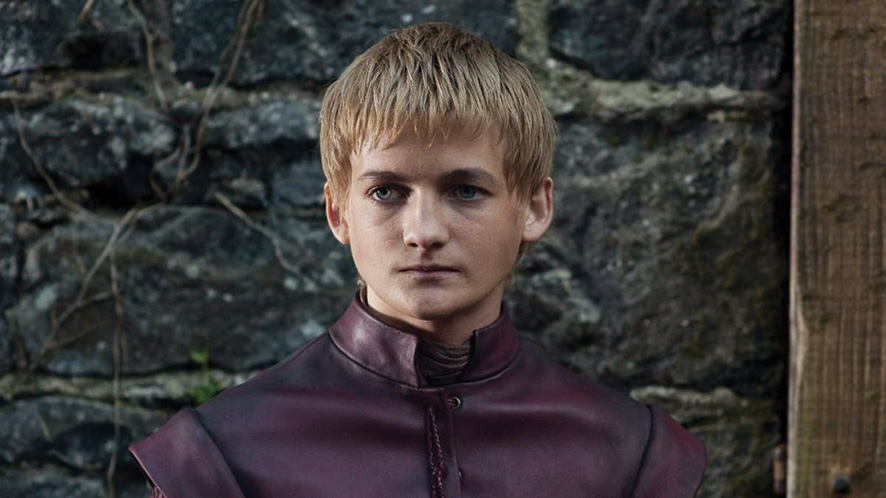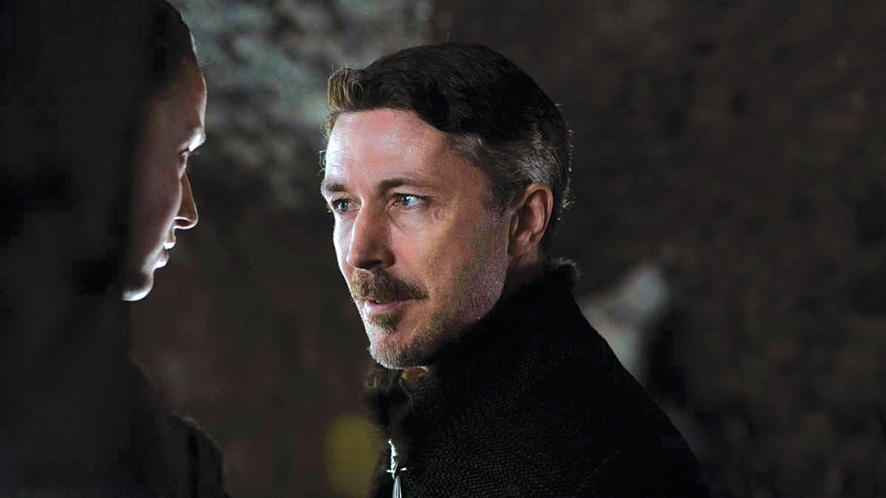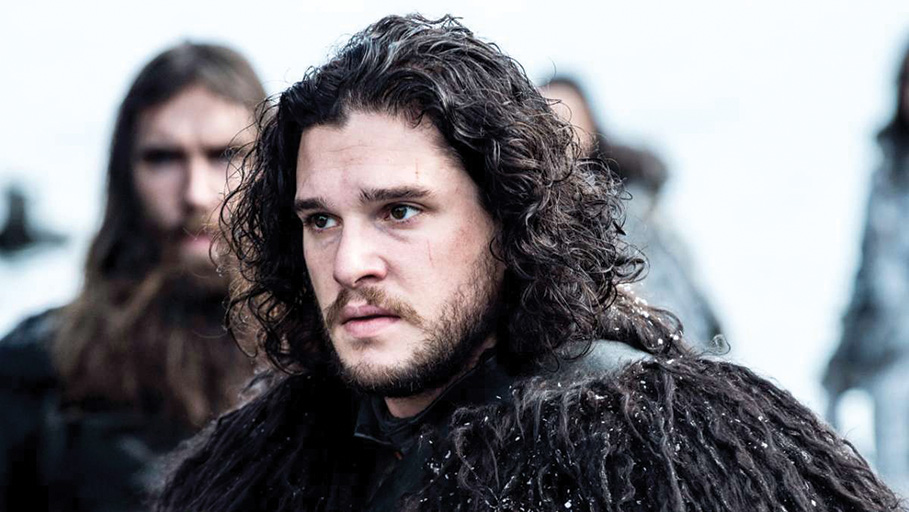
When you play the game of thrones, you win, or you die. There is no middle ground.
So says Queen Cersei, summing up the ethos undergirding the eight-year drama that was Game of Thrones (GoT). The series’ success has been credited with everything from cementing the popularity of fantasy as a television genre, to encouraging video piracy across the planet.
However viewers came to it, though, the series has achieved an audience in the hundreds of millions, making it one of the most popular TV shows in history. Earlier this year the final, record-breaking episode settled who will sit on the Iron Throne and the question can finally be asked: Why did we love it so much?
A word of assurance and warning for laggard viewers first. There will be no spoilers from season eight ahead, so readers sharpening their Valerian steel can put down their whetstones. For those who are yet to start watching, though, you’ve had eight years to catch up, so you will have to forgive me if I drop the odd secret from the first seven.
By the time its final season went to air, GoT was already sitting on an average viewership of 10 million viewers per episode in the United States alone. DVD and Blu-ray collections have also broken all of producer HBO’s first-day sales records—and expected to do so again with the release of Season 8 to Blu-ray by the end of the year. And on the darker side of the ledger, BitTorrent trackers revealed that a single 2012 episode had been downloaded more than 4.2 million times, roughly equal to its broadcast audience. Paid licence or illegal download, however you slice it, television viewers have loved the epic battle over the mythical kingdom of Westeros.
GoT has not been short on industry approval either. Review aggregators Rotten Tomatoes and Metacritic have consistently awarded it a status equivalent to “universal acclaim”. GoT also won scores of commendations since its debut, including five Screen Actors Guild Awards, a Peabody and 47 Emmys, making it the most awarded show in Emmy history. Probably most telling of all, the language of GoT has found its way into popular vocabulary, with phrases like “Game of Thrones” being used to describe the Syrian civil war and Khaleesi emerging as a popular girl’s name in America.
The trouble is, this success just shouldn’t have happened in the West, where individualism, feminism and sexual tolerance are constantly celebrated. GoT is awash with explicit nudity, violence and sexual abuse, especially towards women. Progressive publications and liberal commentators have decried its content as “senseless, objectifying imagery” and “torture porn”. Its writers have defended their choices by saying the content is truthful to both history and human nature, where such things are disturbingly common. Regardless, audiences have continued to tune in because, I believe, alongside these culturally unacceptable inclusions, GoT supplies the most attractive fantasy of all: meaning.
Cultural analyst Mark Sayer says media consumers are desperately searching for meaning in a world that has been flooded with freedom. He believes human life is best described as an interconnected system of three reservoirs or tanks that, when properly balanced, enable flourishing. Firstly, humans need meaning; to feel like what they are doing is important. Secondly, they need a sense of community; relationships at personal and public levels. Thirdly, they need freedom; the power to express themselves as individuals.
The problem, according to Sayers, is that in Western countries the third tank is draining the rest: “We have an overflowing sense of freedom. What that also means is that our tank of meaning is very low. To have a sense of meaning, to also have a sense of relationality and community, you need to limit your tank of overflowing freedom.”
Community and relational connections require boundaries in order to deepen. Likewise, a life purpose grows in value even as we limit our choices to achieve it. But the ability to choose anything, without limit, effectively diminishes the value of everything. Our devotion to freedom at all costs has perversely reaped a harvest of disconnection and purposelessness.
So what has this to do with GoT? Well, one way of looking at its roster of characters is a list of those who acknowledge no limits, but have no community or meaning to speak of, and those who have deliberately limited their freedom for the sake of the other two. In short, the villains and the heroes.
There are a range of bad guys who fit the bill, like Petyr “Little Finger” Baelish who will literally prostitute anything to gain power, but whose betrayals remove any prospect of relationship. The vile King Joffrey refuses to deny himself anything—“Everyone is mine to torment!”—and his self-indulgence results in a pointless, meandering evil. Even Queen Cersei, a sometimes-sympathetic character, is so unrestrained in her pursuit of safety that it ultimately leaves her standing alone. In each case the freedom to do whatever the heart wants results in humanity being reduced.
Walking in the light of our approval, though, are characters whose freedom is balanced by a greater meaning. Tyrian Lannister might appear morally flexible, but his sense of equality sees him regularly favouring the downtrodden and preventing the wheels of power crushing the helpless. As he confesses to Bran his protector, “I have a tender spot in my heart for cripples, bastards and broken things.”
John Snow, the downtrodden “bastard”, is furnished with every reason to betray his oath to the Night’s Watch, but counts honour more important than self-service. Finally, the Queen of Dragons herself, Daenerys Targaryen, is a heroine defined by sacrifice: “I am the dragon’s daughter, and I swear to you that those who would harm you will die screaming.”
Her determination to use her power to protect her people, destroy slavery and enact justice constantly limits her choices, but ultimately builds her reputation.
We may live in a culture that values freedom over devotion, but history regularly demonstrates the power of a devoted life. In his book, Man’s Search For Meaning, psychiatrist and Holocaust survivor Viktor Frankl famously noted that it wasn’t the strongest who survived the Nazi death camps, but those whose lives centred on some form of meaning. “Those who have a ‘why’ to live,” he wrote, “can bear with almost any ‘how’.”
At some level, we suspect that meaning, not freedom, is the key to our survival. But is this just a plot device for epic television? Or does it have a foundation in real life? Do humans in fact have a chief meaning to pursue? Strangely, up until about 50 years ago, you stood a good chance of getting an answer to that question from any number of young children.
Right up until the 1970s it was not uncommon for children attending Sunday Schools in Australia to be taught the Westminster Catechism. The first question of this summary of Christian belief addressed the very issue of life purpose:
Q. What is the chief end [goal] of man?
A. Man’s chief end is to glorify God, and to enjoy Him forever.
By submitting ourselves to God, we find our place in the cosmos as His children, and so are enabled to enjoy His fatherly love, free of fear and struggle. The Bible overflows with this meaning-found-through submission. The book of Ecclesiastes calls it, “the duty of all mankind” (12:13) and so the Gospel of Matthew encourages us to “seek first” God’s kingdom and character (6:33). Why? Because 2000 years before the first internet search for “the meaning of life”, Jesus was warning that “life is more than food, and the body more than clothes” (Luke 12:23).
Daenerys was one character at least who understood that the power to act without limit never ends well:
“Lannister, Targaryen, Baratheon, Stark, Tyrell . . . they’re all just spokes on a wheel. This one’s on top, then that one’s on top, and on and on it spins, crushing those on the ground.”
Yet GoT’s drama was set in a make-believe world, and so could never do more than reflect our yearnings. The Bible, though, is our history. It’s God’s message to real people who struggle with a real darkness when it comes to direction. And so, if we’re seeking meaning that will balance out freedom and deliver lasting community and relationships, we need look no further than the words of Jesus: “I am the light of the world. Whoever follows me will never walk in darkness but will have the light of life” (John 8:12).
Mark Hadley is a Sydney-based screen critic and cultural commentator.












